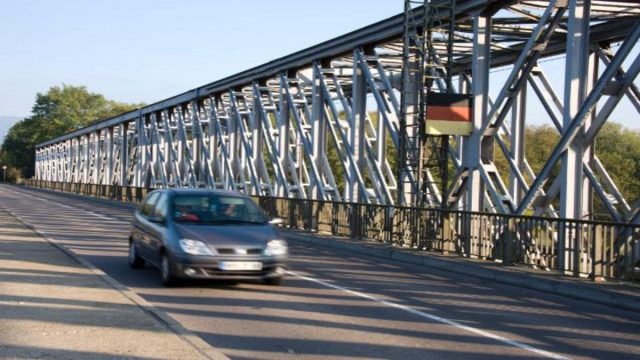Germany’s decision to reintroduce controls at all its land borders over the next six months upsets those who frequently cross them.
From September 16 to March 15, 2025, Germany will impose border controls with Belgium, Luxembourg, the Netherlands and Denmark. Taking into account that those in Austria have been subject to controls since May; those of Switzerland, Poland and the Czech Republic since June; and those of France since July, the country practically returns to the era of border controls in Europe.
But Germany is not the only country that takes this measure: only in 2024, ten Schengen countries reintroduced controls in some of its borders motivated by the fight against terrorism or the control of irregular immigration.
Reactions from the border
Control procedures can cause inconvenience, especially to those they live near the borders and they often travel between two countries.
This is the case of the inhabitants of Eupen, a German-speaking Belgian city located a few kilometers from the border: many they go shopping in Germany because the stores are cheaper and better supplied.
“If shopping becomes a problem for me, So I don’t agree with this measure.“says Andreas, a German citizen who has lived in Belgium for 20 years and married a local woman.
“I think freedom of movement is important because we are in a border area, and all countries need to import and export something from abroad. I think it’s important to be able to come and go,” he adds.
Transporters, accustomed
Truckers crossing the border seem resigned to wasting a few more minutes at checkpoints. Some of them, after all, already They are used to procedures at other borders that have been in force for months: especially those traveling between Eastern European countries or from the United Kingdom. After Brexit they are often forced to show their burden.
Paul, a driver from Yorkshire, doesn’t seem to mind too much, considering the efficiency and speed of the German police. “After Brexitwe saw that the Germans are pretty good at the controls: sometimes less than 15 minutes. Once the bureaucracy is taken care of, you can go back out.”
He often crosses the German border, coming from Belgium or Holland, and although the controls are a nuisance for drivers, he believes that the German Government is doing well in control immigration.
“Six months ago, while my truck was parked, some immigrants managed to get in and hide. They traveled to the border without me knowingand then when I stopped, they cut the lid with a knife and jumped out.”
Measures that bring back memories of the past
The return of controls especially bothers those who lived through the pre-Schengen era and they remember the long procedures at the European borders. That is the case of Marijke Van Caekenberghe, a Flemish citizen who travels with her daughter to Germany to visit some cities near the border.
“When I was studying, we went to visit Berlin and I saw the division between the two parts of the city. Now, when I heard the news, I thought: ‘I hope we don’t go back to that timebecause it was really impressive,'” Marijke recalls.
“In the ’80s, we had to get off the bus, and they checked all our passports, they searched the bus and our luggage. I thought: We’re not going back to that time, are we?” And he adds, “Germany is in the Schengen area: why do they have to check everything now?”.







